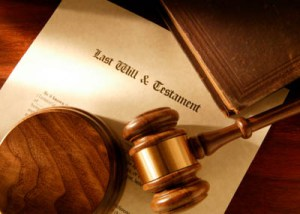
Estate planning is not just for people with big houses and fancy cars. A common misperception is that the term “estate” pertains solely to homes or real estate. Quite the contrary! Many people with detailed estate plans do not own homes at the time of their death, many intentionally so. Your estate is the sum of all your assets: your home, personal property, certain retirement plans, pensions, bank accounts, investments, interest in a business, and even debts owed by others to you are all part of your estate. So, even if you don’t own a 5-bedroom home or 50 acres of land, it is still just as critical to have a plan in place to ensure all your property is distributed in the way you intend.
Against this backdrop, here are five major benefits of creating an estate planning instrument such as a will or trust:
- Ensures Your Wishes are Followed: If you die without an estate plan, the state you live in determines how your property is distributed. The state’s distribution may not be consistent with what you would have intended if you distributed it yourself. By having an estate plan, you’re in control of your property even after death and can guide the process of distribution in the way you see fit.
- Reduces Taxes on Your Property: After death, both federal and state taxes can potentially cut into the property you’ve accumulated over a lifetime of hard-work and sacrifice. This means less money for those you intend it to go to. Having an updated estate plan drafted by an experienced attorney can shield some of this property from state and federal taxes and allow for your beneficiaries to receive the maximum amount allowed by law.
- Protects Your Loved Ones from Unneeded Pain: Following death, many decisions still must be made. Creating an estate plan can reduce some of the emotional suffering by laying out your funeral arrangements and expenses so that your family need not make such decisions during these sad times.
- Protects YOU: With a properly executed estate plan, you can make decisions in advance in the event you are later mentally or physically incapacitated. Through instruments like durable power of attorneys and living wills, you can designate what you do and don’t want in the event of incapacitation. You can also designate a person you most trust to make the hard decisions if you are no longer able to make those choices yourself.
- Accelerates the Process: Distributing property following one’s death can be a long, drawn-out process. Through alternative instruments at your disposal like living trusts, joint tenancies, life insurance, and pay-on-death contracts, you can speed up the process of getting your property into the hands of your designated recipients.
Howland, Hess, Guinan, Torpey, Cassidy and O’Connell, LLP has several attorneys practicing in the field of Estate Planning, including: Richard Torpey, George O’Connell, Michael Cassidy, Thomas Guinan, Bruce Hess, John Howland, Karen Angelucci, Karen Mavros and Dennis Meakim. For more information on our firm, or to learn about the attorneys and fields of law that will be driving this blog, visit our website to find out more.
Legal Disclaimer: The contents of this website are intended solely for informational purposes. They neither constitute nor imply an official legal opinion on behalf of Howland, Hess, Guinan, Torpey, Cassidy and O’Connell nor do they establish an attorney-client relationship of any kind. Howland, Hess and O’Connell encourages all readers to seek and consult professional counsel before acting upon the information contained on this site.
 RSS Feed
RSS Feed